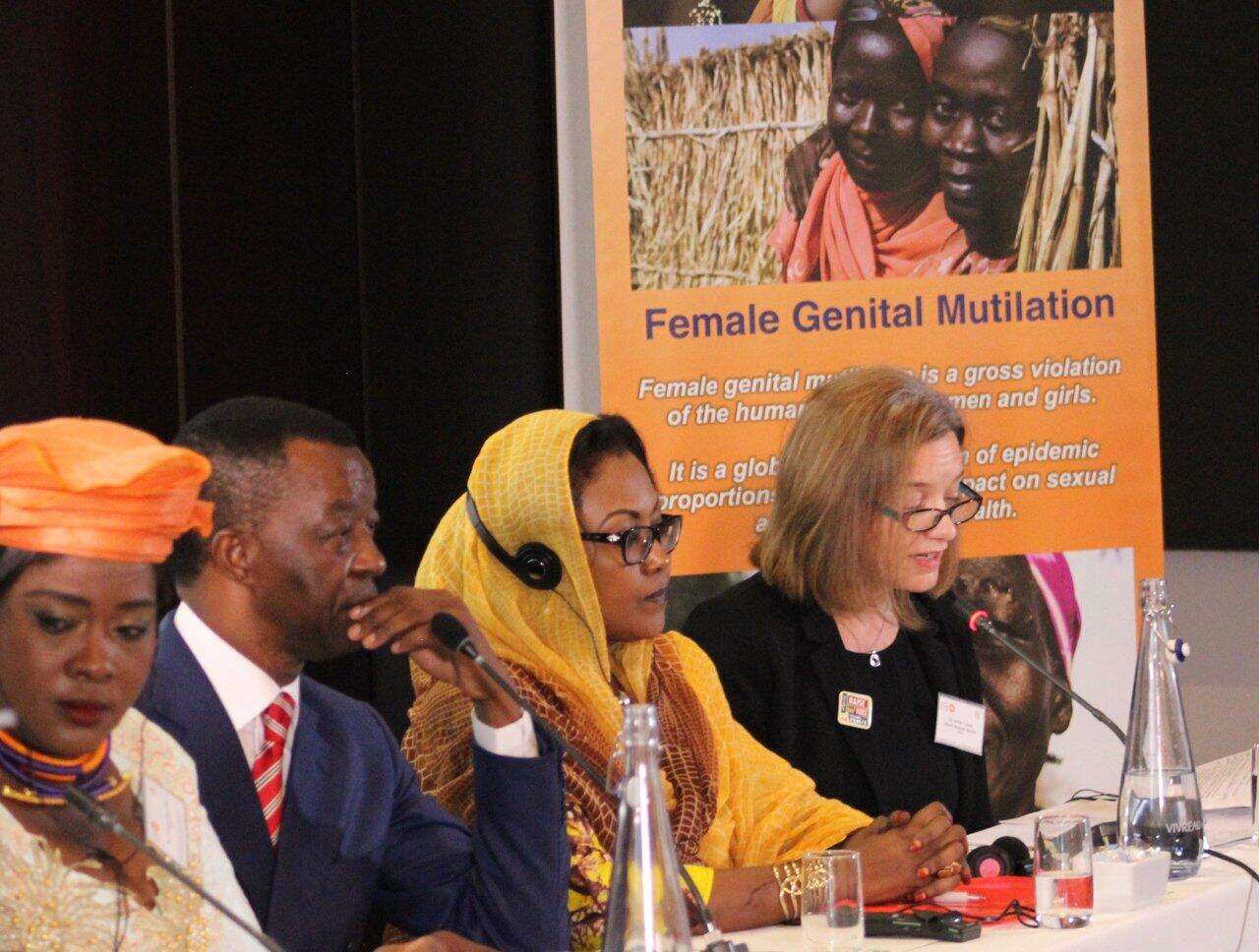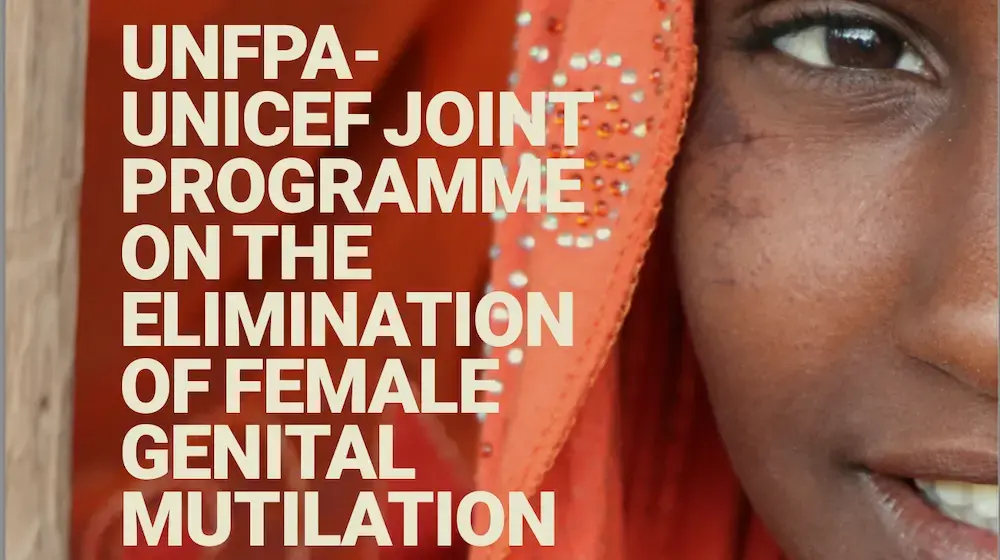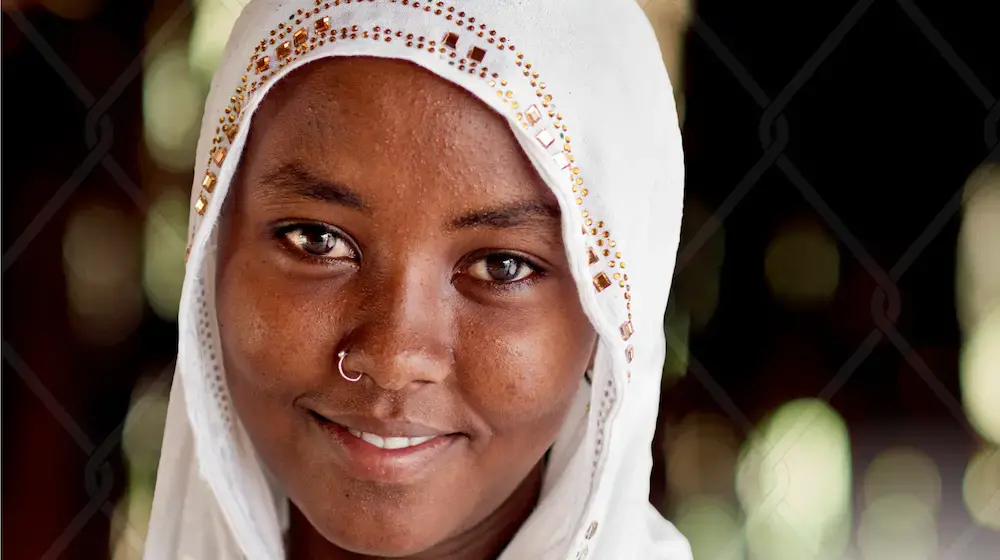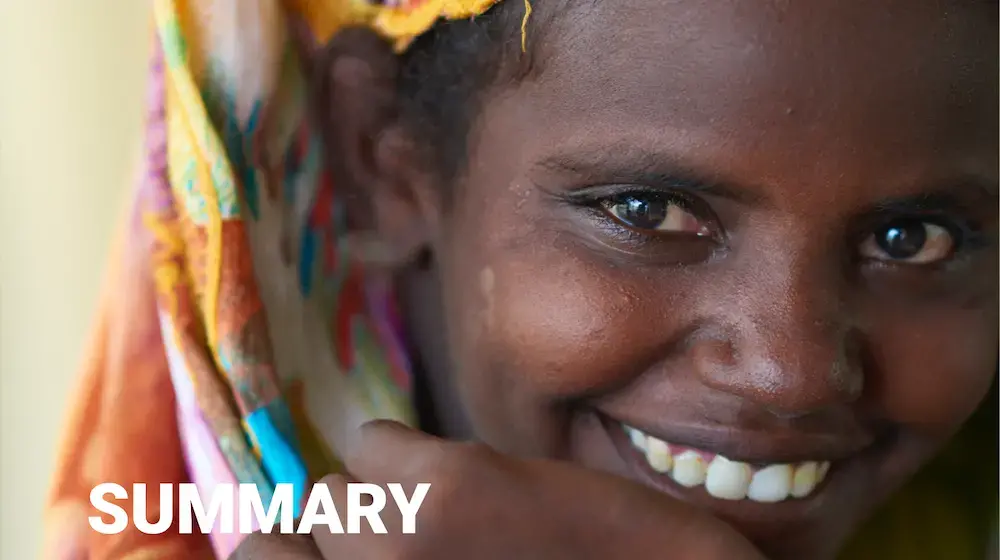Parliamentarians from the Pan-African Parliament Women’s Caucus met in Johannesburg over two days to discuss how to accelerate action to end female genital mutilation (FGM) and child marriage in Africa.
Around 80 women representing parliaments from across the continent discussed the challenges faced by women and girls as a result of FGM and child marriage, and shared their experiences.
An action plan is being drafted as an outcome of the meeting on Ending FGM: Role of Parliamentarians. This was organized jointly by the Pan-African Parliament, UNFPA East and Southern Africa Regional Office (ESARO) and UNFPA West and Central Africa Regional Office (WCARO) in Johannesburg, South Africa from 29-30 July.
Need for urgent action
The sheer number of girls and women affected by FGM and child marriage highlights the need for urgent action, said Justine Coulson, Deputy Regional Director UNFPA East and Southern Africa.
More than 125 million girls and women have been cut in the 29 countries in Africa and Middle East where FGM is concentrated. “In Africa alone, more than three million girls are estimated to be at risk for FGM annually,” she said.
And if current trends in child marriage continue, the number of girls under 15 years giving birth in Africa is expected to rise from 2 million to 3 million a year by 2030. “If we do nothing, in the next decade over 14 million girls under 18 years will be married every year,” she said.
Human rights violations
FGM and child marriage are human rights violations as they deprive girls and women of the right to decide their own futures and control their own bodies and their sexuality.
Moreover, FGM and child marriage are health issues. Child marriage results in teenage pregnancy; the leading causes of maternal deaths and injuries for girls aged 15 to 19 are pregnancy and childbirth. It also contributes to high rates of obstetric fistula, premature births, sexually transmitted diseases (including cervical cancer), HIV and domestic violence.
“States are called upon to develop policies, regulations, protocols and rules to ensure the effective implementation of national legislative frameworks on eliminating FGM and child marriage and ensuring the rights and health of women and girls are protected,” she said.
UNFPA and UNICEF have since 2008 been at the forefront of the movement to accelerate the abandonment of FGM, with a focus on accelerating change in 15 countries in North, East and West Africa. “Through the actions of UNFPA and UNICEF under the joint programme and those of our partners and national stakeholders, we have seen some important achievements towards eliminating FGM,” she said.
'Women and girls need your support'
Equally important advances have been made towards ending child marriage: UNFPA supported the 2014 launch of the African Union Commission (AUC) campaign to end child marriage. And last month the SADC Parliamentary Forum Plenary Assembly adopted a model law to end child marriage.
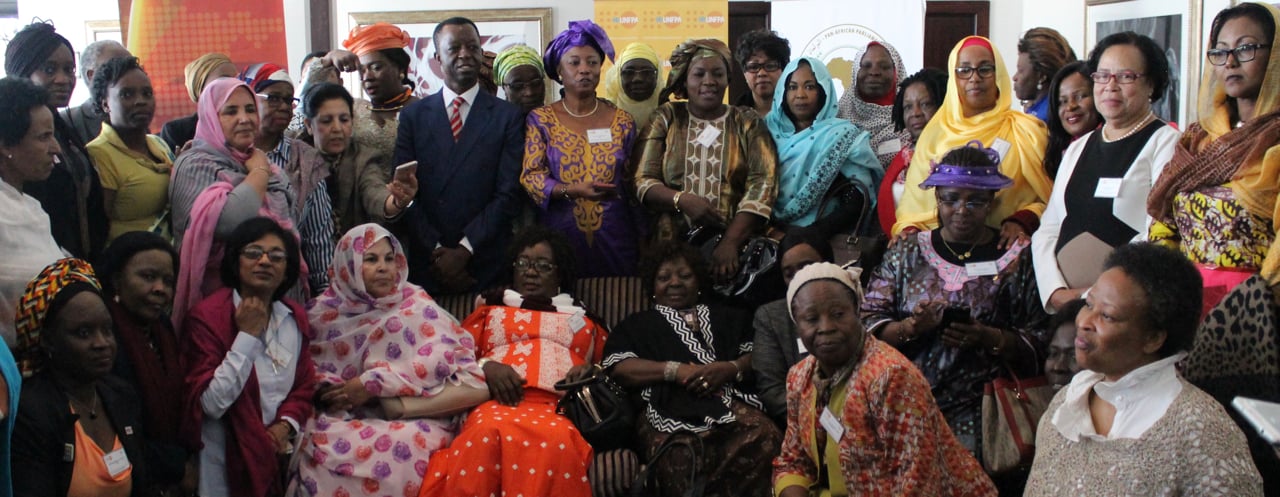
'These efforts are beginning to show tangible results – for example, Kenya has seen a drop in the incidence of child marriage from 27 per cent of all girls below 18 years to 21 per cent. However, millions of girls each year continue to be at risk of being cut or being coerced into an early marriage.
“The girls and women of Africa need your support to end female genital mutilation and child marriage within a generation and this is possible. We need to act now. All it requires is our engagement, our passion and our dedication to upholding the human rights of women and girls,” she said.
‘Encourage governments to end FGM, child marriage’
Roger Nkodo Dang, President of the Pan-African Parliament, said FGM was one of the worst example of human rights violations that women and girls are victims of in this region.
Since 2009 the Women’s Caucus had been analyzing the magnitude of these social ills and their bearing on the social life on women and girls, so that these negative practices can be eradicated. “We have to double our responsibilities to defend our women and girls, and also encourage our governments to put in place mechanisms to end FGM and child marriage,” he said.
He encouraged the parliamentarians to bring to the table different government instruments that could help win the struggle to end FGM and child marriage. “Africa is a the richest continent but also the poorest. Women are going to be at the forefront of the change and they need to be healthy and should not see their rights violated. We need justice. Women need to take their rightful place.”
FGM a threat to women’s rights
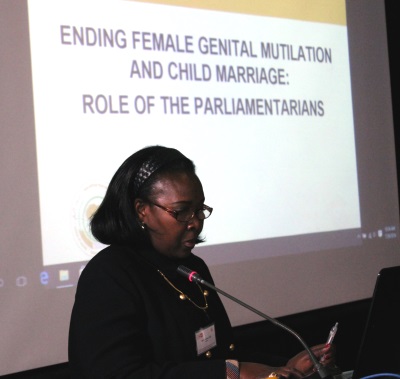
Seynabou Tall, UNFPA ESARO Gender Adviser, discussed the different types of FGM and the immediate health consequences, such as bleeding and excessive pain, and longer-term consequences, such as pain and bleeding during sex, and birth complications such as obstetric fistula and maternal deaths and stillbirths. Psychological consequences include fear of sexual intercourse, post-traumatic stress disorder, anxiety and depression.
Idrissa Ouedraogo, Technical Adviser for UNFPA WCARO, discussed FGM as a threat to women’s rights. FGM was initially viewed as a health issue and the focus was solely on health risks, but in the 1990s the international community recognised it as a human rights issue too. Numerous instruments establish that governments have a duty to prohibit FGM and protect vulnerable women and girls.
Accelerating action on child marriage
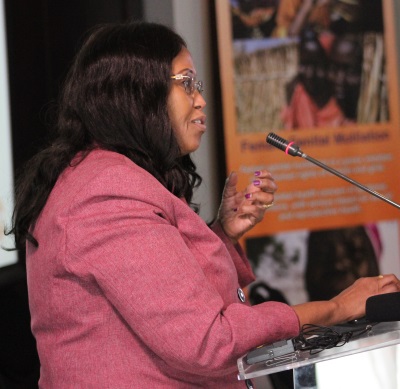
The extent of child marriage and its context in Africa was presented by Dr. Asha Mohamud, UNFPA ESARO Youth Adviser. She outlined the global and regional commitments on Adolescent Sexual and Reproductive Health (ASRH) as well as legal barriers to ASRH, and looked at a framework for accelerated action to end child marriage. While laws and policies are in place to protect and ensure ASRHR, many loopholes still exist; for example, for early marriage with parental consent and/or ministerial/court approval. She outlined global, regional and national responses, as well as the role that parliamentarians can play in ending child marriage.
The meeting aimed to strengthen the parliamentarians’ knowledge of FGM and child marriage as human rights violations and a threat to human dignity, as well as a sexual and reproductive health and rights challenge. It also seeks to enhance awareness on the continent of the effects of child marriage and capitalise on participants’ experiences, including in the areas of participation and addressing inequalities and discrimination.
An action plan to further the partnership between UNFPA and the PAP Women Caucus was developed as an outcome of the meeting. Priority areas include legislation, community engagement, resource mobilization and allocation, advocacy and implementation at national and regional levels. Once the plan has been finalized, through the joint programme the necessary resources for implementation will be mobilized.

